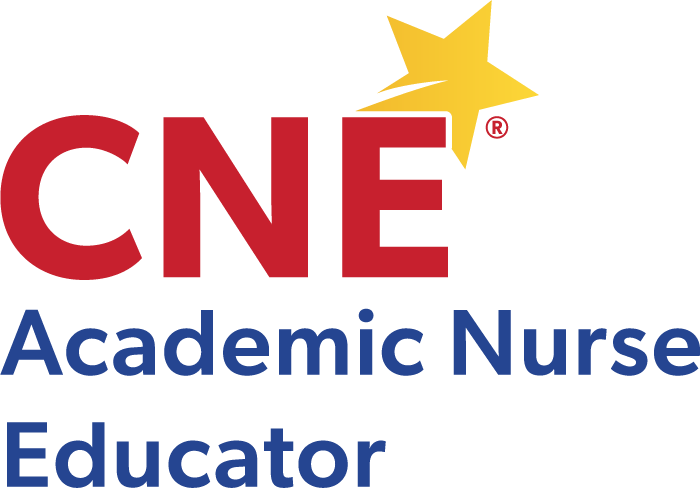
Certified Nurse Educator (CNE®)

The academic nurse educator certification was created to establish nursing education as a specialty area of practice and create a means for faculty to demonstrate their expertise in this role. Academic nurse educators engage in a variety of roles and
functions. The extent to which a specific nurse educator implements the various roles may vary according to many factors such as the mission of the nurse educator's institution, the nurse educator's rank, the nurse educator's academic preparation,
and the type of program in which the nurse educator teaches. Nursing education takes place in diverse settings can include technical schools, hospitals, two-year colleges, four-year colleges, and universities
The certification test plan for this role is based upon the identified competencies of the academic nurse educator and can be found with the Certified Nurse Educator Candidate Handbook.
Print Your Certificate
You are now able to print your own certificate confirming successful attainment of your certification. First, enter your Certification Profile via the Certification Portal on the page of the certification on the NLN website. If you have not entered your profile previously, log in with your NLN member login credentials. After assuring yourself that all of the information on your membership data base is correct, exit all the way out. Log in again via the Portal and you should be taken to your Certification Profile page. On the left side of the page is a menu of links to various options. One of them is the Print MY Certificate option. Click on that option and you will be directed to the page for accessing the print function. The same menu contains a link to Renewal. The link will allow you to proceed with uploading Renewal Credit activities at any time during the five-year cycle that the certification is in effect.
CNE Honor Cords
CNE Honor Cords are available for purchase at the link below:
Non-Discrimination Policy
This certifying organization does not discriminate among candidates as to age, sex, race, religion, national origin, ethnicity, disability, marital status, sexual orientation, and gender identity. Review of test items, inclusive of the potential of test item bias, is maintained.
Candidates have the right to expect all aspects of the certification process to be fair and free from discrimination. All reasonable efforts should be made to ensure examinations are job-related; no candidate is excluded from the examination as a result of age, sex, race, religion, national origin, ethnicity, disability, marital status, sexual orientation, and gender identity; language that may be offensive to population subgroups has been eliminated; and bias and stereotyping have been reduced.
Bias is the presence of an item characteristic that results in the differential performance of candidates of equal ability. Variations in test results are acceptable only when they reflect the true ability of candidates and not when they result from unintended interpretation of the item by an identifiable subgroup. Bias in an examination is a validity issue.
Although the NLN has preparatory courses and resource materials available to anyone interested in certification, these materials are not the only way to review and prepare for any of the certifications available. There are many different methods and materials that may be helpful in the study process. The certification program gives no advantage to those applicants using NLN-sponsored materials. Information is not known to the program regarding which applicant used which specific study approaches and materials. The purchase of NLN-sponsored preparatory and/or study materials is totally optional for all applicants and will never be a requirement of NLN Certification.
CNE Practice Analysis
A practice analysis study was completed in January 2023 to define the job functions of a CNE. The results of this study serve as the cornerstone for examination development by ensuring the content on the examination reflects the tasks performed in practice settings.
During the process, a committee of subject matter experts delineates the major areas of responsibilities, tasks, and competencies required for competent performance in the profession. Their work is then validated through a survey of practitioners, where respondents review and rate the competencies according to the importance to the role. The results of the validation survey are used to develop a blueprint, or plan, for the examination. Ratings from the survey are directly translated into the percentage of items that should be included in the examination for each content area. This blueprint guides the item development and examination assembly process and ensures that the examination reflects the relative importance of the required competencies.
CNE Standard Setting
A standard setting study was completed in May 2023 to determine the performance standard (i.e., cut score) for the examination. A systematic procedure known as the modified Angoff method was used, which is the most common standard setting approach for credentialing examinations. This method relies on a panel of experts to determine the point at which the examination separates candidates who have obtained the necessary knowledge from those who have not.
